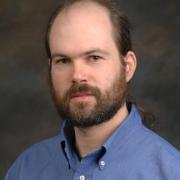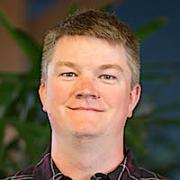Presentations

Over the last years, Open QA has grown an mature tool for the Open Suse community. Its combination of virtualization, automatic testing, scripting and image-to-video processing has proven to be a reliable and helpful piece of software that helps assure the quality of installation routines and desktop software as well. Oh, and recently at Fosdem, Suse announced that even SLES might benefit from that. In his presentation, Markus Feilner will show what Open QA is about, where it came from, how it works and which features it has to offer. Live Demos included.
This talk will teach you how to automate interactions with web applications.
The main focus of this talk will be Selenium, a widely used library for controling browsers. Selenium is available on all major platforms and programming languages. Examples will be given in multiple languages so that everyone can feel at home.
We will also cover best practices for writing large-scale test suites and finish off by discussing other tools that fill gaps left by Selenium.
Developers are the main audience, but sysadmins will be able to find uses for much of the material too.
Join us as we wrap up Friday with a must-see show, exclusive to SCALE13x. The team from the popular Bad Voltage podcast (Jono Bacon, Bryan Lunduke, Stuart Langridge, & Jeremy Garcia) will be taping a full live show, and the first show ever in front of a live audience. Come and be a part of it!
The show will be packed with discussion, giveaways, challenges, and more, all wrapped up in the fun and irreverent style of Bad Voltage. Be sure to get along, there will be plenty of surprises in store so you won't want to miss it.

Part of any database administrator's job is planning for disasters... but what does that actually mean? We'll discuss disaster scenarios, how to make sure you minimize data loss and downtime, and how to handle the recovery gracefully in your PostgreSQL database.

You might think that you need to learn computer programming languages sequentially but after you master one, your best bet may be to learn by comparing and contrasting the way they solve particular problems. In this talk, a simple problem opens up an array of choices for solving it. I examine each one, find a solution and at the same time, highlight strengths and weaknesses of each language / technology. This excercise will challenge your thinking about how a computer language ought to behave as well as motivate you to branch out and learn more languages.

This talk covers our motivations for a new open-source research CPU implementation, an overview of our FPGA based research platform, and an overview of the interesting points in the boot process from an OS porter's perspective.
Builder is a new effort to bring a modern development environment to GNOME. It aims to bring together the core developer tools that we expect from an IDE today. Auto completion, error reporting, documentation, debugging, VIM keybindings, split view, build management, hardware integration, simulator, code navigation, robust search, and more. To make GNU/Linux programming more accessible, Builder will include tutorials for beginners and intermediate developers right in the IDE.
The project is under heavy development and funded by both Christian Hergert and the community at large.

Mindset is an idea discovered by world-renowned Stanford University psychologist Carol Dweck after decades of research on achievement and success. In this talk, you'll learn what a Growth Mindset is and how open source is uniquely suited to encourage it. I'll discuss how Growth Mindset and open source technology can benefit the brain development of students, technologists, non-geeks, and even corporations. This talk is designed to appeal to anyone with an interest in building a better brain!
Want to learn how facebook scales their load balancing infrastructure to
support more than 1.3 billion users? We will be revealing the
technologies and methods we use to route and balance Facebook's
traffic. The Traffic team at Facebook has built several systems for
managing and balancing our site traffic, including both a DNS load
balancer and a software load balancer capable of handling several
protocols. This talk will focus on these technologies and how they have
helped improve user performance, manage capacity, and increase reliability.



